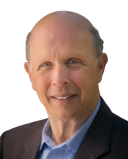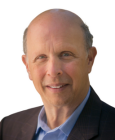Hypnosis
6 Life Lessons From Non-Academic Experiences in College
A Personal Perspective: How college shaped my core.
Posted May 13, 2023 Reviewed by Vanessa Lancaster

Most of the memorable lessons I learned at college occurred outside of its academic environment.
Make the Best of Your Circumstances
On the same day I was accepted as a freshman at UC San Diego in 1975, I was turned down by the college I had fervently hoped to attend. In retrospect, I learned that usually things turn out well even if my life experiences do not unfold as planned. The key is to make the best of whatever experiences you have been granted.
On the way to campus during my first road trip to San Diego, my father and I became lost among the hills of La Jolla, CA. At random, we stopped at a home with a “Cat-in-the-Hat” house number and asked the elderly owner for directions. He instructed us and suggested we tell the professor we were scheduled to meet that, “Ted Geisel sent us.”
It was only upon my arrival to UCSD that I learned we had met Dr. Seuss. This was the first of many meaningful coincidental events in my life that the psychiatrist Carl Jung termed synchronicity.
Care for Others
During my first week on campus, I joined the staff of the college newspaper, the major campus media source at that time. At the end of the first quarter, my City Editor asked how I was doing. I was very moved that someone cared about me, especially as I was feeling quite lonely. This experience taught me about the importance of practicing kindness through caring about others. I used a similar approach thereafter throughout my life.
Remain Flexible
My first major was psychology, which I enjoyed a great deal. However, I did not think of this field as a “hard science” and therefore decided I would also major in biology. Despite these majors, I did not consider a career in medicine because I was repelled by the associated “blood and gore.”
One conversation at the end of my junior year helped change my plans. My friend suggested that I could become used to this aspect of medicine and that I would make a good physician, as I cared for people.
I thought about my research work with squirrel monkeys during the summer after my freshman year at college. At the beginning of my work, I greatly disliked the stench created by these animals, but by the end of the summer I hardly noticed their odor as I had gotten used to it. It was then that it dawned on me that I could get used to uncomfortable parts of the practice of medicine.
I signed up for the medical college admission test the next week, and never looked back. This was the first of several major good turns in my life that occurred quickly. I believe that a key to success is remaining flexible during a decision-making process.
Stand Up to Challenges
My spiritual growth was jump-started when I, as a Jewish sophomore, lived in a suite with seven Christian friends. Some asked why I was uninterested in being saved by joining their faith. In response to their questions, I was prompted to learn more about Judaism and how I could find spirituality within my own religion. I learned that standing up to a challenge is a great opportunity for growth.
Life Can Evolve in Surprising Ways
Thus, at college my major interests were psychology, biology, journalism, and spirituality. Even though I thought that these fields were disparate, 20 years later I was able to combine all of them into one vocation: medical hypnosis.
I had worked as a pediatric pulmonologist on the east coast for more than a decade when I ran into a patient with asthma who was so allergic to milk products that twice in his life, he nearly died after milk exposure. He told me that when he smelled cheeseburgers, he developed asthma attacks.
I thought this was a strange complaint and asked him to imagine eating a cheeseburger, which he could not do in real life. Within seconds he developed such difficulty breathing that I thought he might develop a life-threatening problem.
I told him, “Stop it!” And fortunately, he did.
I thought he might have been joking, but he insisted that he really could not breathe. Immediately I started wondering, “If you can think your way into disease, can you think your way out?” Later, I figured out that this patient's reactions were the result of a state of hypnosis.
It turns out that most people with chronic medical illness develop psychological reactions that can affect the severity of their symptoms. By learning how to control their emotions using self-hypnosis, which can be taught in two to three sessions, patients can improve dramatically. Among other applications, patients can benefit from hypnosis to help with their stress, anxiety, habits, and in dealing with pain.
As a college student I had no idea that a career in hypnosis would be possible, and that it would allow me to combine my interests in the body, mind, and spirit. I did not know that learning about writing in college would help me spread the word about this extremely effective and efficient therapy. This is why I encourage my patients and students to strive for a broad education. You never know how things will fall into place.
Pay It Forward
A series of synchronous fortunate events led to my return to La Jolla eight years ago, where I set up my medical hypnosis practice. My hope was that my office would be accessible to UCSD students as patients and for those interested in learning about medical careers.
I have since had the privilege of mentoring some UCSD students, who have shadowed me in my practice. I have told them that I hope they will pay it forward by practicing kindness with future students, just like I was taught by my mentors at UCSD.
Takeaway
In retrospect, I am better able to appreciate how the non-academic lessons I learned as a result of my college experiences helped shape my attitude and success in life. I hope that being mindful of this kind of educational process can help current students derive more benefit from their college experiences.
A version of this article appears in The Triton.




